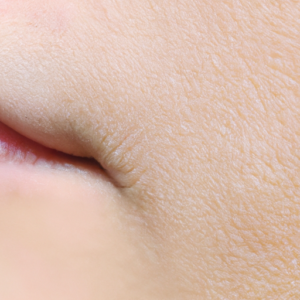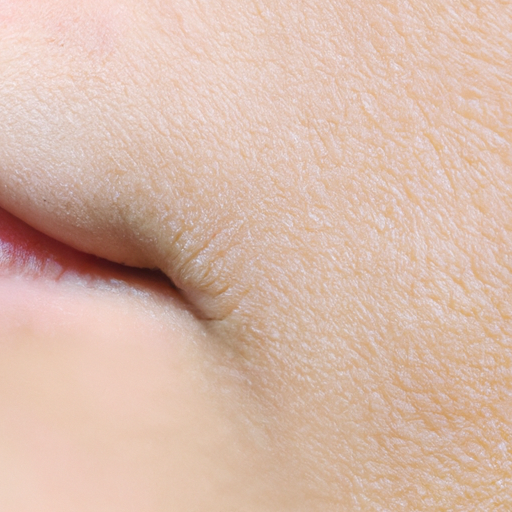Removing Acne Scars: Everything You Need to Know
Hey there, skincare enthusiasts! Are you tired of looking in the mirror and seeing those stubborn acne scars staring back at you? Well, you’re not alone. Acne and acne scars are a common concern for many people, and they can seriously affect your confidence and self-esteem.
So, what exactly are acne scars? They are the result of inflamed blemishes that damage the skin’s tissue. When the pore swells, it causes a break in the follicle wall, which can lead to different types of acne blemishes, such as whiteheads, blackheads, and pimples. And if these blemishes get damaged or infected, your body’s natural healing process can create a scar.
Now, the big question is – why remove acne scars? Well, simply put, they can be unsightly and affect your appearance. But that’s not all. They can also lead to emotional distress, anxiety and impact the quality of life of those who have them.
What do Dermatologists Recommend for Getting Rid of Those Pesky Acne Scars?
Hey there, folks! As a dermatologist, I’ve seen many patients struggle with acne scars over the years. Acne scars are not only physically unappealing, but they can also lead to emotional distress for many patients. Thankfully, there are a variety of treatment options available that can help reduce the appearance of acne scars. Let’s take a closer look at what dermatologists usually recommend!
Overview of Treatment Options: Dermatologists have several treatments to address acne scars. The most commonly used treatments are topical treatments, laser treatments, chemical peels, and surgery or dermabrasion.
Topical Treatments: These treatments are applied directly to the skin and help reduce the appearance of acne scars. They might contain retinoids, hydroquinone, or alpha hydroxy acids (AHAs). While some of these options can be bought over-the-counter, prescription-strength formulations are usually more effective.

Laser Treatments: Laser treatments are much more effective than other treatments for reducing acne scars. A laser is applied to the skin, which encourages collagen production and reduces the appearance of scar tissue. The downside is that these treatments can be expensive and may require several sessions.
Chemical Peels: Chemical peels are another option for reducing the appearance of acne scars. In this treatment, a chemical solution is applied to the skin, which causes the surface cells to exfoliate. This causes new cells to grow and helps reduce the appearance of acne scars. It’s important to note that chemical peels may not be effective for deeper scars.
Surgery or Dermabrasion: Dermabrasion and surgery are options for more severe or deep acne scars. Dermabrasion involves using a high-speed instrument to remove the top layer of skin, while surgery involves cutting out the scarred tissue and stitching the skin back together. Both treatments require a local anesthetic, and downtime varies depending on the treatment.
Finding the right treatment really depends on the individual’s needs and the severity of their scars. That’s why I always recommend that patients schedule a consultation with a professional dermatologist. They’ll be able to assess your specific needs and recommend the treatment that’s best for you! If you want to know more about how facials can help reduce acne scars, check out this article.
My Take on Acne Scar Removal: Pros and Cons of Different Treatment Options
After consulting with dermatologists and conducting research, I’ve learned that there are several treatment options for acne scar removal. Each of these options has its own set of advantages and disadvantages:
Topical Treatments
Topical treatments can include creams, lotions, or gels applied directly to the skin. They can contain ingredients like retinoids, vitamin C, and hyaluronic acid, among others. These treatments can work wonders for shallow scars and hyperpigmentation. However, it can take months of consistent application to see any real improvement, and results may vary from person to person.
Laser Treatments
Laser treatments use light energy to stimulate collagen production and resurface the skin. They can be effective for deep scars and are generally quicker than other treatments. However, they can be quite costly, may require multiple sessions, and can cause redness, swelling, and scabbing in the treated area.
Chemical Peels
Chemical peels involve applying a chemical solution to the skin to remove the outer layers and reveal fresh, new skin underneath. They can be helpful for mild-to-moderate scarring and hyperpigmentation. However, they can also be painful, cause redness and peeling, and may require multiple treatments for optimal results.
Surgery/Dermabrasion
Surgery and dermabrasion involve physically removing the scar tissue with a scalpel or a rotating brush. This method can be effective for deep scars, but it can be painful and require a longer recovery time. Additionally, there is a risk of scarring, infection, and other complications associated with these types of procedures.
Ultimately, the best treatment option for you will depend on the severity and type of your acne scars, your skin type, and your personal preferences. It’s important to consult with a dermatologist and carefully consider the pros and cons of each option before making a decision.
How to Eliminate Acne Scars: Finding the Perfect Alternative
Now that we have discussed the various options available for getting rid of acne scars, it is important to determine which option is best for you. Of course, each person’s situation is unique, and so the solution that will work for one person may not work for another. That is why it is important to consult with a dermatologist to select the most appropriate treatment for your specific situation.
During your consultation, your dermatologist will examine your skin and discuss the level of severity and longevity of your acne scars, along with your skin type, sensitivity, and medical history. Based on these details, your dermatologist may recommend a combination of treatments, depending on the severity and depth of your scars.
If you’re unsure about which treatment to choose, keep in mind some key factors such as cost, potential side effects, and the level of discomfort that each option may involve. For example, some treatments may be more expensive than others, while others may involve significant downtime after the procedure.
It is also essential to note that it can take several sessions or weeks and sometimes months to see significant results. It’s crucial to have realistic expectations and patience since eliminating acne scars is a gradual process. That said, consistent treatment and following all advice from your dermatologist can help you achieve the best results.
In conclusion, when selecting the right treatment for acne scars, it is important to seek advice from a professional. Listen carefully to the dermatologist’s recommendations and have an open discussion about your concerns and expectations. From eliminating mild to severe acne scars, we hope you now have more knowledge and understanding of the available treatment options that work for you.
Conclusion: So, What’s the Verdict?
So, the question is – can acne scars be removed? The answer is yes! There are various treatment options available, and it all depends on your individual skin type, scarring type, and budget. After consulting with a professional dermatologist, it’s important to select the most appropriate treatment.
In my professional opinion, the best options are laser treatments, chemical peels, and surgery/dermabrasion. While topical treatments may work for some, they are often not as effective on deeper scars. On the other hand, more invasive procedures like surgery may carry higher risks and longer recovery times.
It’s important to consider the pros and cons of each option, and consult with a professional before making a decision. They will be able to assess which treatment will yield the best results for your individual situation.
Acne scars can be stubborn, but with the right treatment plan, and patience, they can be effectively removed. Remember, it’s always best to consult with a professional and follow their advice to achieve the best results.
